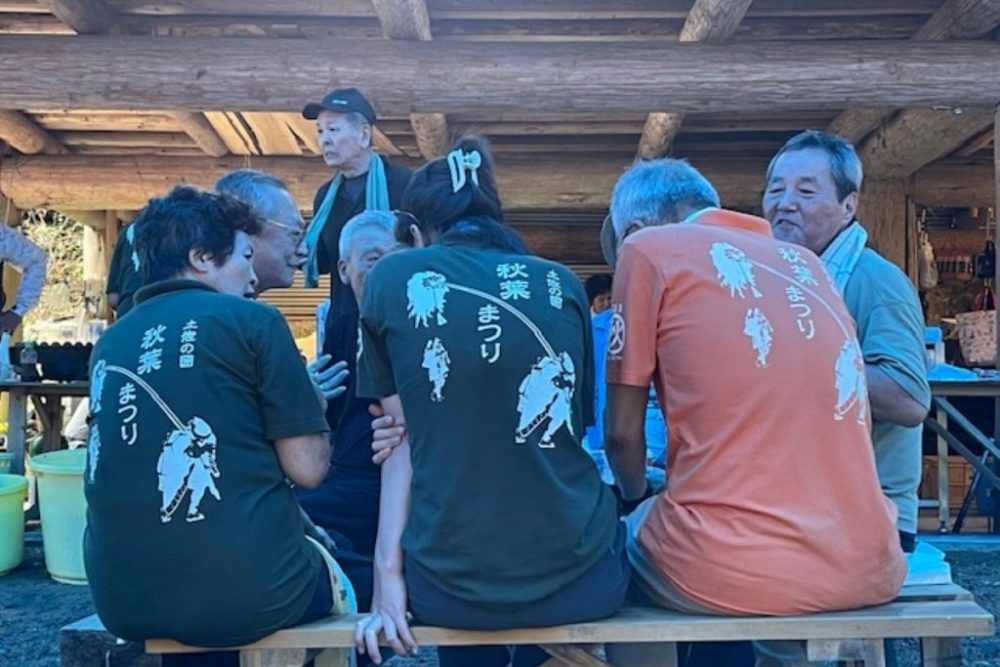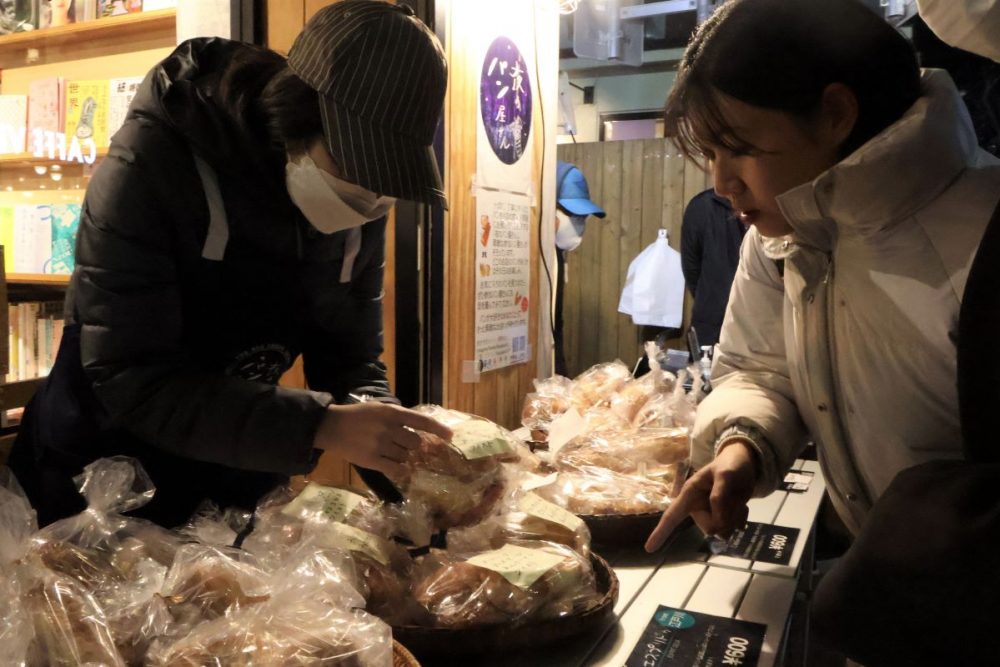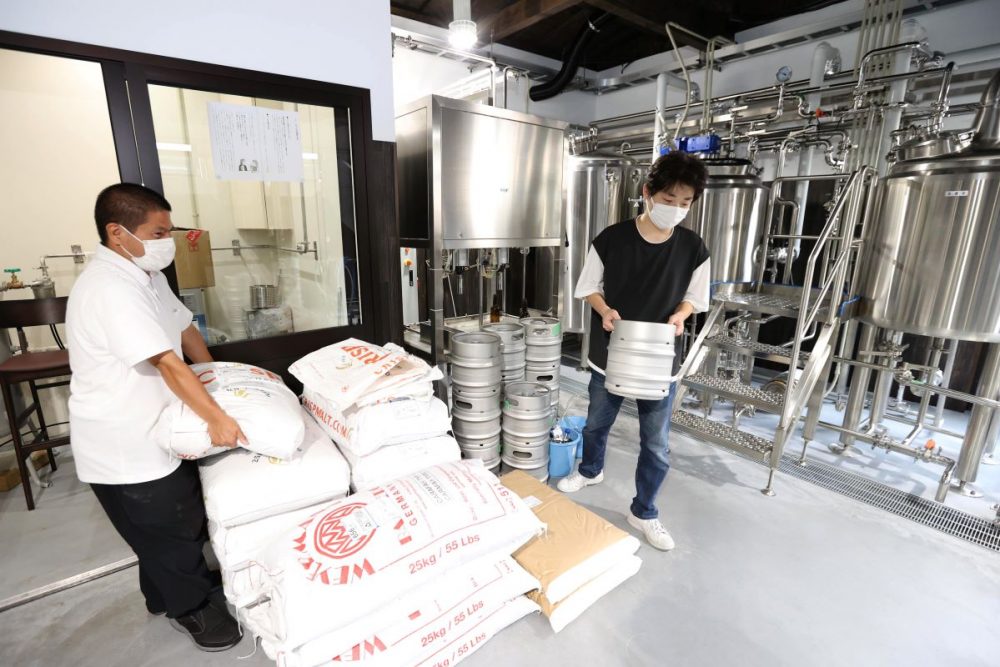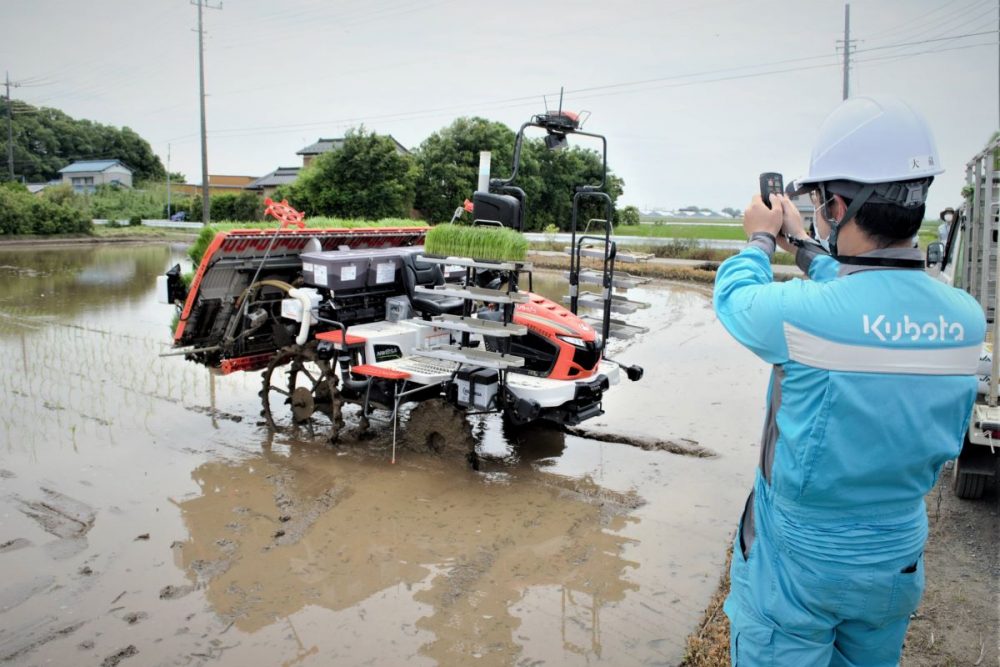Yukigaya Chemical Industry and Its Innovative Sponges
Student contributor Moa Maeda introduces the Yukigaya Chemical Industry and its newly-branded ethical sponges that are making a splash in the cosmetic industry.
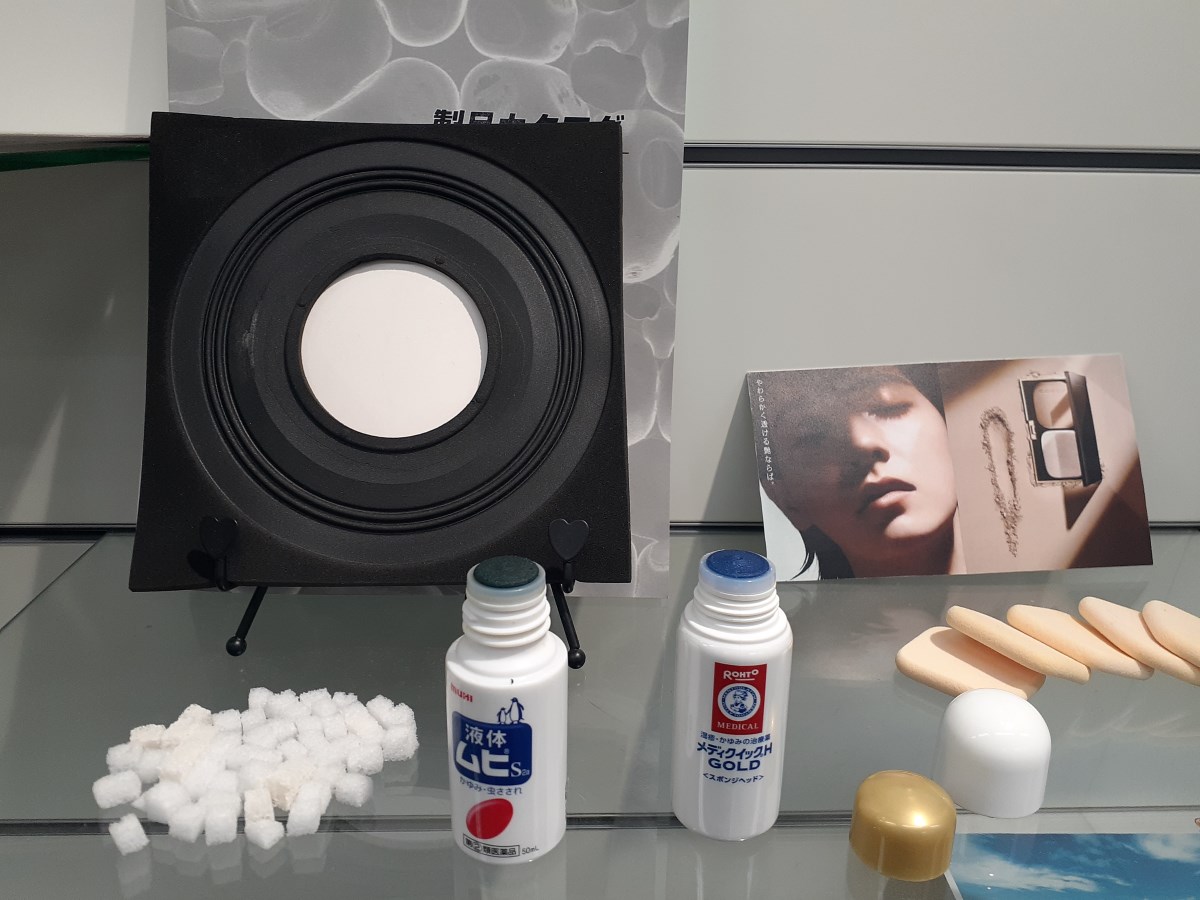
Recently, Yukigaya Chemical Industry has been all the rage in the makeup industry. The company's product, the Yukilon Sponge, holds an over 70% share of the global marketplace. Clients include famous Japanese cosmetic companies and international brands. The sponge has received multiple prestigious awards and attracted wide attention from the media.
What is so special about this sponge? With much honor, I was allowed to talk with CEO and President Mr. Noboru Sakamoto and ethical concierge Ms. Minori Nomura to find out the answer.
But first, I would like to introduce its producer.
Yukigaya Chemical Industry
Founded 70 years ago after World War Ⅱ, the Yukigaya Chemical Industry Co., Ltd. has been passed on through three generations, manufacturing sponges for all fields.
The company has worked on multiple projects throughout the years, including expanding factories to Thailand and Shanghai and constructing schools in impoverished areas of China.
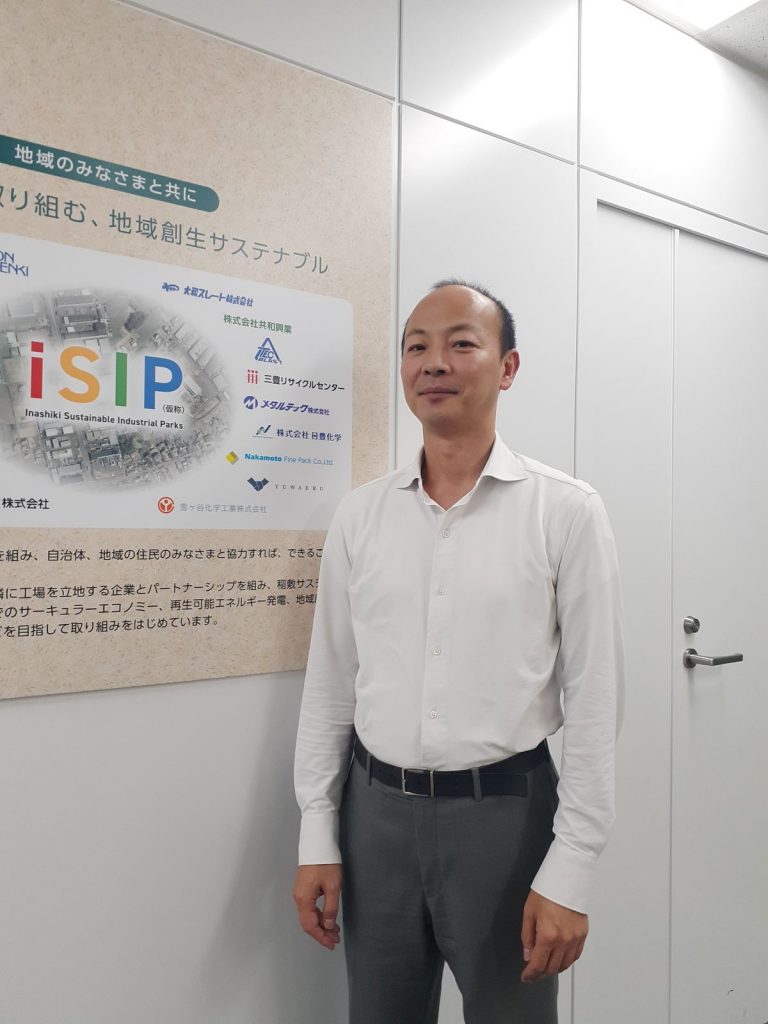
Recently CEO and President Mr. Noboru Sakamoto has begun a new project that will lead to a better path in the industry: ethical makeup sponges.
The Yukilon Sponge
In 2019, when Mr. Sakamoto announced his will to change the company's direction towards a more SDGs-aware one, the Yukilon sponge became the company's first product made from synthetic and natural rubber.
"In the past, all we had were natural rubber sponges. They weren't oil-resistant. At the time, these were the only ones companies knew how to make; there were no other options."
Then synthetic rubber-manufacturing technology was introduced to the world. Suddenly in the 1970s, every company switched to using synthetic rubber material.
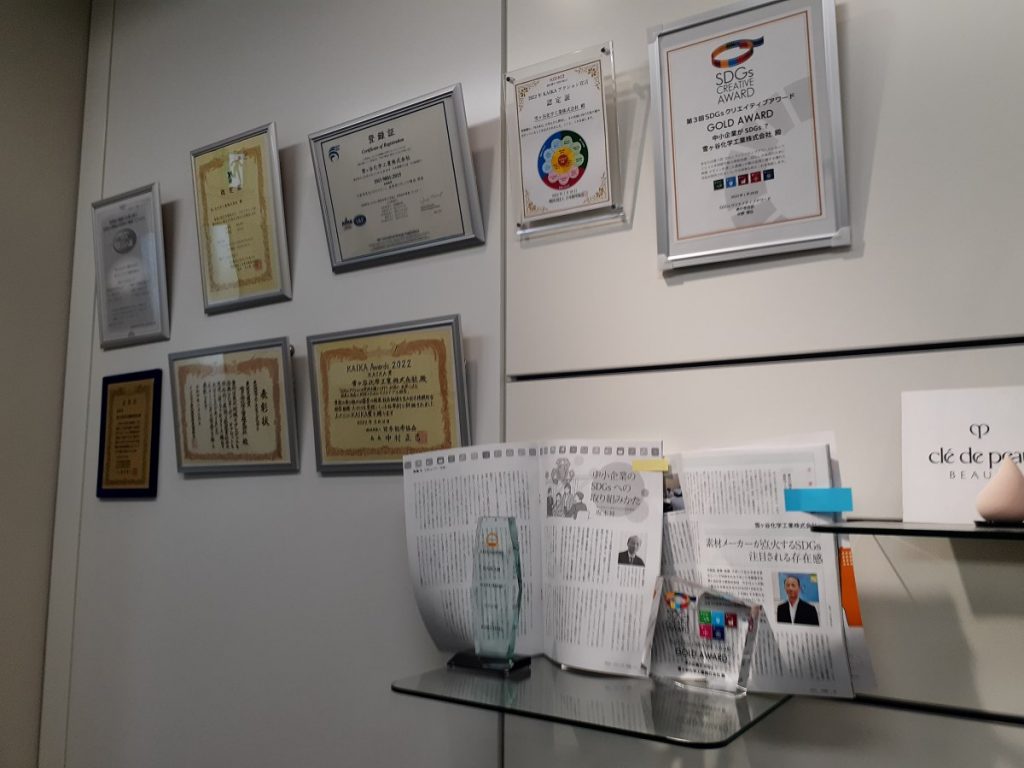
"In the past, the idea was that if a product's efficiency was good enough, it would automatically sell. However, nowadays, marketing values are changing. Efficiency just won't cut it; it has to be eco-friendly, or business would be meaningless."
True to his word, Mr. Sakamoto took his vision one step further and proposed the idea of further transparency and traceability by introducing Fairtrade to the Yukilon project. The company designed a new natural rubber fair trade label (which looks like white sap dripping from cuts in a rubber tree) to reassure consumers that their products are child-labor-free.
A Swift Transition
This entire transition, surprisingly, took only six months ("considerably fast work," Mr. Sakamoto agreed). The company used existing strong connections and trials at the already-built Thailand branch factory to manufacture the Fairtrade-branded Yukilon sponge.
This was a considerable switch-up for the company that had originally been manufacturing all of its products from petroleum-based materials.
Mr. Sakamoto says that his employees were initially bewildered by the sudden change of course. He had already been aware of the slowly shifting perspective on SDGs-related products. However, there was a reason for his change in mindset and final push towards the decision.
Setting a New Course
"I took a course in the year of 2019. The lecturer claimed that 'From now on, the social structure will create a way that makes economical benefit for those who contribute to society, [and we] recommend that you make your current services or products more socially aware.'"
Mr. Sakamoto gives credit to this talk as the inspiration that made him finally work towards the creation of the Yukilon sponge. Now the entire company has shifted perspectives as well.
Employees now participate in study groups to deepen their understanding of how to accomplish SDGs in the company, what ethical business truly is, and other topics through discussion. Mr. Sakamoto emphasizes the importance of proper education in the SDGs, especially when handling it in business.
"There is no meaning if your knowledge stays surface-level. You can't pretend you understand because you don't. You have to dig deeper by showing with your actions."
Yukigaya Chemical Industry has also set goals to accomplish by 2030 that include cutting CO2 emissions to zero, raising female employee rates to half (a goal which — seeing the workplace through the mini tour Mr. Sakamoto offered — seems already accomplished), and seeing that 100% of the natural rubber used in Japan make up of Fairtrade. The annual "sustainability reports" on their website show how far they've come with their goals.
Spreading Awareness
Now, Mr. Sakamoto hopes that the sponge will serve as an example of spreading awareness and making more ethical products for other SMEs in Japan.
The work has already started by gathering other companies near their main factory in Ibaraki Prefecture at study meetings. They are spreading the much-needed information and have opened booths at the Cosmetic GX with You event where multiple cosmetic companies gather under one motto: B to B to the future. The company spreads awareness, offers information, proposes an ideal future, and invites other companies to join their path to an ethical lineup.
And, not to mention again, they hold a fair share in the industry, so their presence is hard to ignore.
On the outside, Yukilon is an unassuming sponge. Sure, it is oil-resistant like never before. It is even very hygienic with its anti-molding feature.
But it also appeals to a broad customer range because of its allergy resistance and non-use of unsafe chemicals that save workers and potentially countless others from dangerous working conditions in foreign countries.
It's a Swiss army knife of everything you need, with the eco-friendliness on top.
Final Thoughts
Surprisingly, Mr. Sakamoto states that he feels no difference in the enthusiasm of consumers toward eco-friendly, ethical products.
"I believe our work is done with the Yukilon sponge. The only change we are waiting for is in our customers. […] Every customer's consumer behavior has the power to change society. We are a restaurant that offers a good menu that our customers refuse to eat. Why are you turning away from us?" He questions.
The confidence in his every word speaks volumes about what he sees in the future to come.
Moa Maeda is a bilingual high school student living in Tokyo and a student contributor to Japan 2 Earth.






